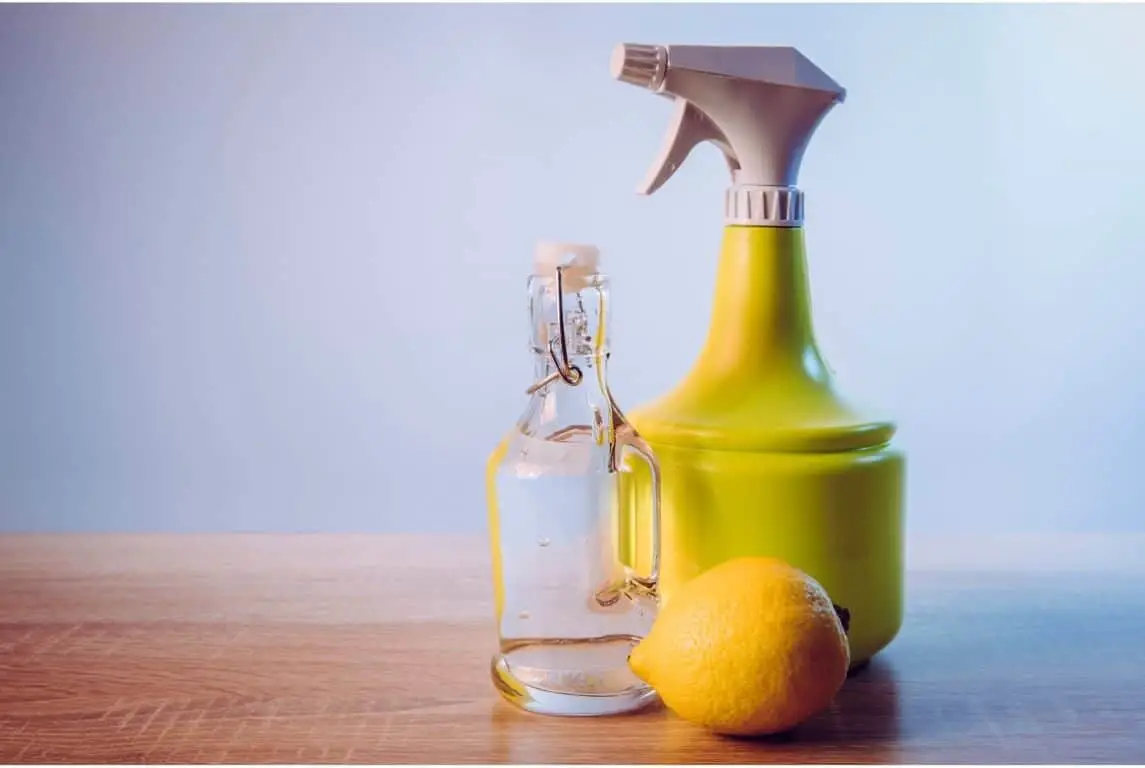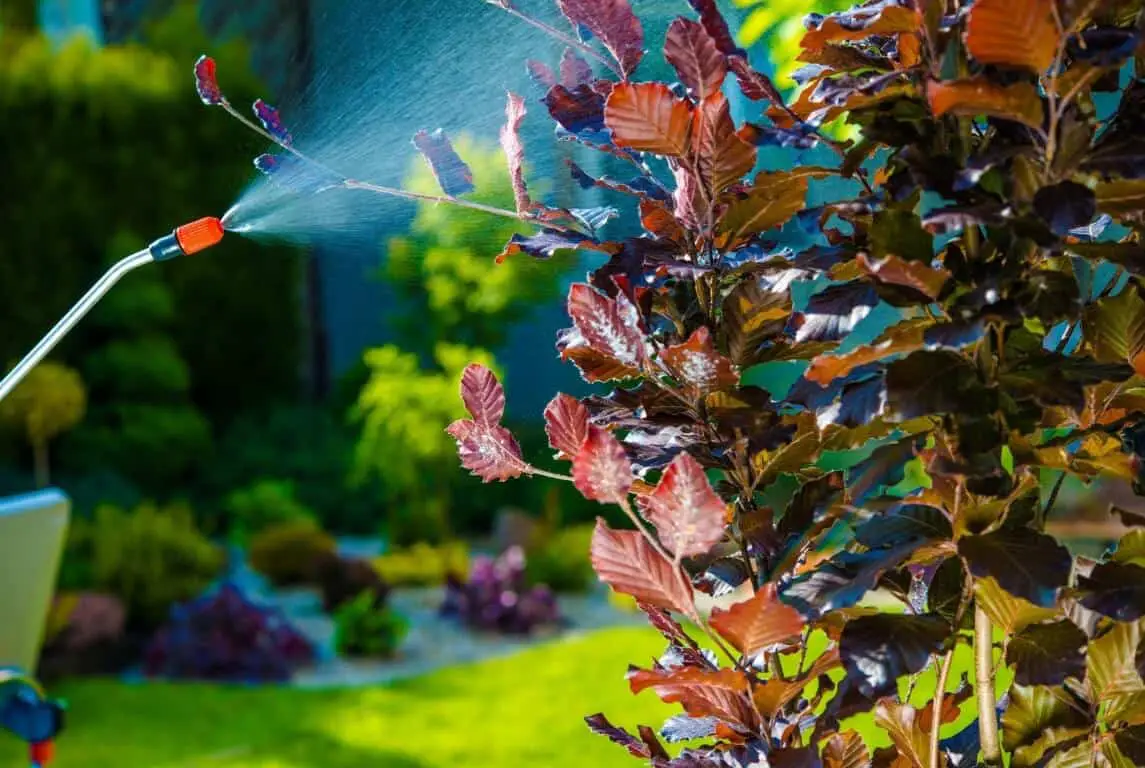Contents
One of the main reasons gardening takes the day is the natural, self-monitored food you grow for yourself and your family. Good gardeners try to keep chemicals at bay. Using kitchen waste and compost, then using natural methods to keep off bugs. Now every gardener should know the secret natural bug repellent for plants vinegar. Vinegar shall help you irritate the pests away from your body when on the farm, then away from your plants, let us see how.
What You Need

Vinegar
Wine vinegar, white vinegar, and cider vinegar are all good in making your organic bug repellent for plants. However, wine vinegar and cider vinegar are expensive compared to white vinegar, since the effects are the same, white vinegar shall be your best bet. Colavita vinegar works well for this purpose.
- Imported from Italy
- White Balsamic Vinegar
- Light, fruity taste.Acidity 6%
- Pairs well with white meats, white sauces, vegetables, salads, fish, and rice
- Non GMO Product
Water and soap
Vinegar contains acid contents, which is why sometimes it can be used to kill weeds in your garden. Now you don’t want it to burn some of your garden plants, that’s why it should be diluted with water. Adding some soap is always a good way to bring the acid levels down for safer organic pest control.
Garden sprayer
Remember to get a garden sprayer if you don’t have one already. You shall need to spray the mixture once ready. Also, get a mixing container to help you in mixing the parts together. Choose a quality garden sprayer like the ITISILL portable garden pump sprayer.
- ¡ï Portable & Multi-Purpose Pressure Sprayer: This hand sprayer can be used for cleaning cars, irrigation plants, pet bathing, home cleaning. TIPS: This lawn sprayer is not suitable for corrosive or acidic solutions.
- ¡ï Adjustable brass rod: The high-quality brass nozzle can adjust the intensity of the water spray from direct injection to fine mist spray. This sprayer is equipped with a comfortable 50-inch hose and extended 19-inch spray stick, which helps to spray longer distances or inaccessible places!
- ¡ï Ergonomic handle: The ergonomic handle with locking trigger not only reduces fatigue, but also facilitates long-time spray operation. It can also be used to lock the trigger at the handle for continuous spraying with a steady amount of water. An adjustable shoulder strap makes it easy to hang the sprayer on your body for easy movement.
- ¡ïSafety & Convenience-The yard sprayer is made of high-quality PE material. This allows you to clearly see the liquid remaining capacity scale through the transparent bottle, allowing you to replenish the solution in time. This lawn sprayer is equipped with a safety valve that automatically relieves pressure when the pressure exceeds 2.5-3Bar.
- ¡ï Quality Assurance - The main structure of the pressure sprayer has wear-resistant seals, rings and anti-clogging filters for easy maintenance and durability. We also provide a set of wear-resistant seals, TIPS: This garden sprayer can be replaced free of charge if there is a quality problem within one year!
Preparation of Natural Bug Repellent for Plants Vinegar
- Get your mixing container and add at least one liter of water.
- In the water, add a tablespoon of soap and mix well.
- Now it’s time to add your vinegar. Depending on the purpose of the spray, you can add 200-400 ml of vinegar.
- Add more water and mix through my to have your natural pest repellent ready.
Point to Note During Preparation
Take note that different pests shall require different sides of vinegar to control. It is also important to consider the area of application, if you are going to apply on the leaves of your garden plants, then concentrating on vinegar should be low, preferably 200ml.
However, in case you are planning to control ants, then use cider vinegar, preferably 300-400ml. Using too high concentrated vinegar on plants shall burn them. The rule here is simple, the more the vinegar, the more lethal your repellent becomes.
It is important to try your mixture before the actual spraying. Pour a little into your spraying bottle and spray a single plant or leaf in your garden. Leave the plant for at least 48 hours and monitor to note any harmful effects. If everything looks okay, then you are ready to spray your plants.
Related: Cleaning Garden Tools with Vinegar
How Do You Spray Your Natural Pest Repellent?

Spraying your homemade organic pest repellent, you need to take a little bit of caution. As mentioned earlier, we have different purposes and concentration for our repellent. We shall look at how to spray natural vinegar repellent for aphids and ants.
Spraying to control aphids
If aphids are the troublemakers in your garden, we believe you are already prepared with the 200 ml vinegar concentrated repellent. First, as hinted earlier, choose one heavily infested plant. Spray a generous portion of your repellent and allow 48 hours of action.
If the plant shows any signs of burning up, then add more water to your repellent and try again. Check for its effectiveness, whether the amphids are fading or not. If there is no harm to the plant and aphids fade away, then it’s time to do the actual spraying.
Fill your spraying bottle with your natural bug repellent. Spray it directly on the leaves of your plants. Amphids like camouflaging below the leaves, spray more repellent below the leaves. Before you spray, check the weather, if it’s going to rain, do not spray, and only do it after the rain. If you spray then it rains immediately, you shall have to repeat after the rain since it washes away the spray.
Spraying should be done either early in the morning or late in the evening. For the best experience, spray at least twice a week and watch the aphids on your plants fade.
Spraying to control ants
In this spray, natural bug repellent for plants vinegar is usually in high concentration. Such mixture might burn up your garden plants and therefore much caution should be taken. All you need is to keep ants away. Ants usually make paths that they leave pheromones to mark. Identify the paths used by the ants and spray a generous amount of your vinegar repellent. Also, spray around the fence and any other entry points for ants.
The vinegar destroys the pheromones whole killing the already available ants, making it hard to find their way back. Still, vinegar has a pungent smell that irritates most pests and insects, therefore, keeping them away from your garden. Avoid spraying this high concentration repellent on your plants, they might get burnt by the acid in vinegar.
Weed eradication
Vinegar contains acid which sometimes comes in handy when killing weeds in your garden. All you need to do is prepare a higher concentration than that for pests. You can mix the same portion of vinegar and water. Spray this mixture directly on the weeds but avoid any contact with your plants. If you have stubborn grasses, this mixture shall sort you out.
Keep insects off your skin using vinegar
Vinegar shall help you keep away undesirable insects and pests from landing on your skin while in the garden. Just take a clean container, mix 50-50 water-vinegar ratio and spray it on your exposed skin. You are ready to go.
Conclusion
When considering natural bug repellent for plants vinegar is the way to go. As we have seen, it is effective on aphids, ants, snails, and many more bugs in the garden. As a bonus, a 50-50 vinegar-water mixture can control stubborn weeds in your garden.
Remember to exercise caution when using vinegar since it can scorch your plants. Always label your homemade bug control mixtures and keep them away from the reach of children.
Want to know more about gardening ?
Fill in your email address in the form below and you'll receive all the latest updates directly in your in-box.
Thank you for subscribing.
Something went wrong.
Last update on 2024-07-11 / Affiliate links / Images from Amazon Product Advertising API

